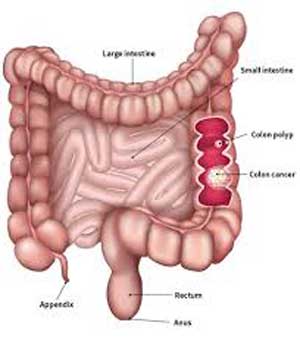Control over intake and discharge: Food and colonoscopy.
Nobody likes to think about it and most of us keep putting off the medical examination. Of course it is a sensitive and intimate matter, but a colon cancer screening can be life-saving.
Since colorectal cancer does not provide a uniform clinical picture, but can cause many different symptoms, it is often not detected or is detected too late. Since early detection can be life-saving, patients should have regular check-ups from the age of 50 at the latest. The doctor treating the patient can assess the risk of colon cancer and carry out further examinations if there is a suspicion. The screening consists of palpation of the rectum as part of a general physical examination and a laboratory analysis of the stool for invisible blood. A complete colonoscopy should be performed every five years.
According to current scientific knowledge, a healthy lifestyle also reduces the risk of bowel cancer. It is estimated that the rate of bowel cancer could be reduced by 50% if people lived healthier lives.
Here are a few tips for an easy and inexpensive lifestyle:
A lot of exercise in everyday life not only increases our general well-being. According to scientific studies, about 11% of colorectal cancer can be attributed to lack of exercise!
A wholesome, mainly plant-based diet is important, with plenty of vegetables, fruit, pulses, nuts and wholesome cereal products such as wholemeal bread or muesli.
If you eat meat, avoid red meat from beef, lamb, pork or game if possible. Two to three portions of white meat from organic poultry or fresh lake fish per week are quite sufficient.
The amount of fat you include in your diet should be less than a third of the total calories. Since vegetable fats are clearly healthier than animal fats, vegetable oils with monounsaturated fatty acids, such as olive oil, or with polyunsaturated fatty acids, such as rapeseed, thistle, linseed or sunflower oil, should be preferred.
The right diet also ensures regular bowel movements. As the daily emptying rhythm varies from person to person and also depending on the situation, everything is normal between three times a day and once in three days.
Moderate alcohol consumption and abstaining from cigarettes are also important.
Colon cancer cannot be ruled out by these measures, since in addition to one's own lifestyle, unknown factors such as an inherited predisposition also play a role.
That is why preventive examinations are also important for people who live healthy lives.
(Edited from article by Heike Bludau)
Michel Robeers

